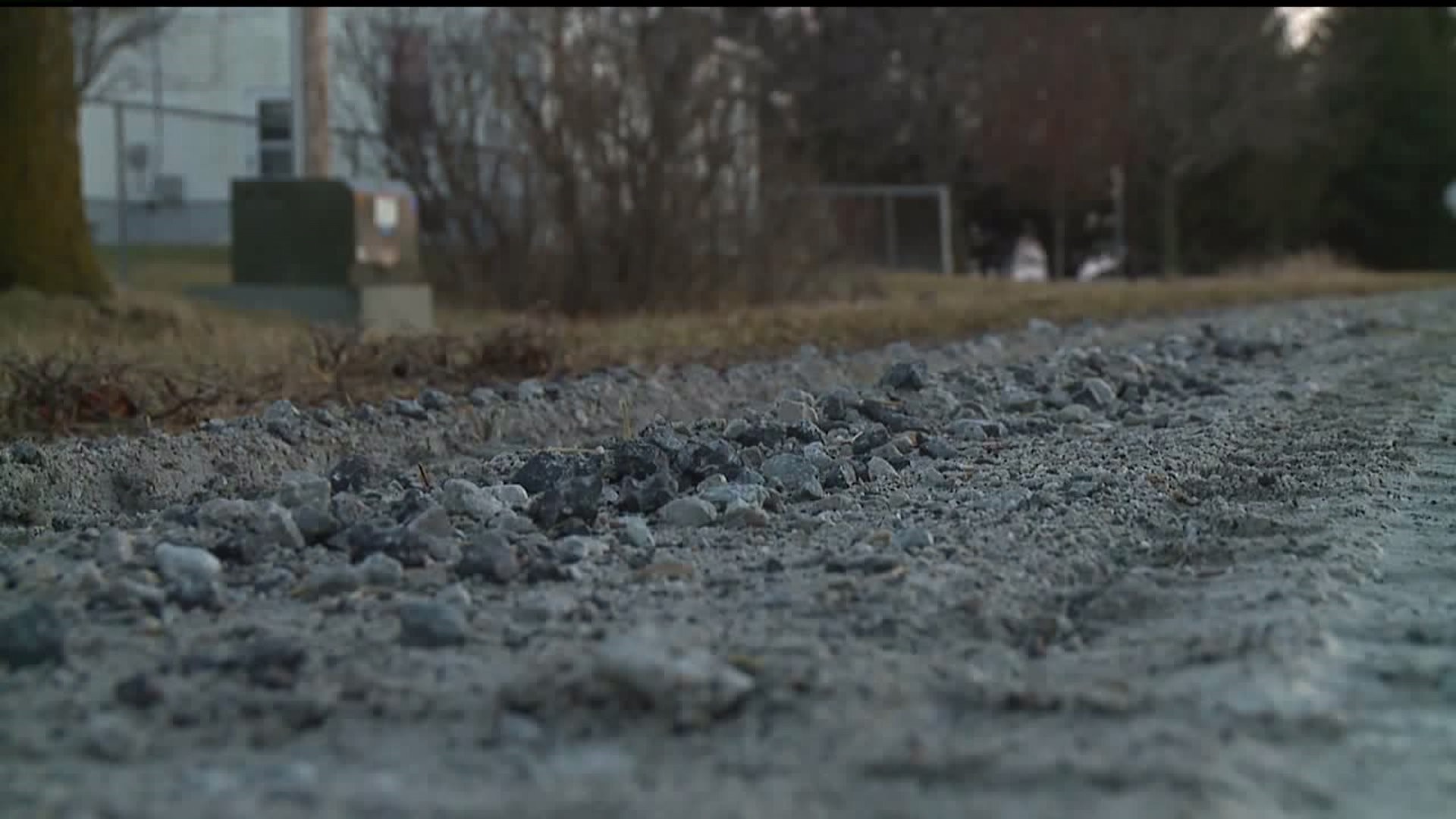MUSCATINE, Iowa-- People living in Muscatine County say the county board of supervisors needs to take action after a study concluded the material used to repair rural roads is toxic.
The county started using slag to repair and maintain those roads in 2008. Slag is a by-product from the melting and recycling of metals. The county decided to go with slag since it was a cheaper alternative to gravel.
But now many people living along roads with slag say it's causing roads to get worse and the material is toxic to people.
"I've got grandkids coming out to the farm," says Doug Hoag. "I'm concerned about all that."
Askew Scientific Consulting used samples and data provided by SSAB, the company that makes the slag, to determine if heavy metals were present at toxic levels. That data was then sent to the Iowa Department of Public Health to identify possible effects on children and adults.
The study concludes that children and adults could see adverse health effects from regular exposure to the slag and slag dust because of high levels of manganese.
"For a child to be adversely impacted from the slag they would need to play in that area about once every five days," the state toxicologist Stuart Schmitz wrote. "Because of this, I would say that any child playing or living very close to areas where slag is deposited could reasonably be expected to experience adverse health impacts.
"This is worse than I thought it would be. It's hazardous to people," says Daryl Sywassink, a Muscatine County farmer. "We're paying money for something that's taking us backwards."
But county board supervisor Santos Saucedo says the data is being misrepresented.
"I started doing some fact checking on some of the information to verify we were getting accurate information," he says.
Saucedo says he reached out to SSAB, who says the samples used in the study were taken earlier in the slag-making process, not from slag ready to be used on the road. The supervisor says the company explained that while the final slag product may contain harmful elements, those elements cannot seep out and be harmful to people.
"Even if you ingest it, you're not going to be able to get it to break down and create something he claimed," Saucedo says.
Saucedo, along with several other board supervisors, tells News 8 they'll continue looking at the study and could take action to end the use of slag in Muscatine County. Supervisor Doug Holliday says he wants to bring slag use to an end.
Hoag says he'd like to see the slag already on the roads cleaned up to avoid harming people in the years to come, but supervisors say that could be costly.

